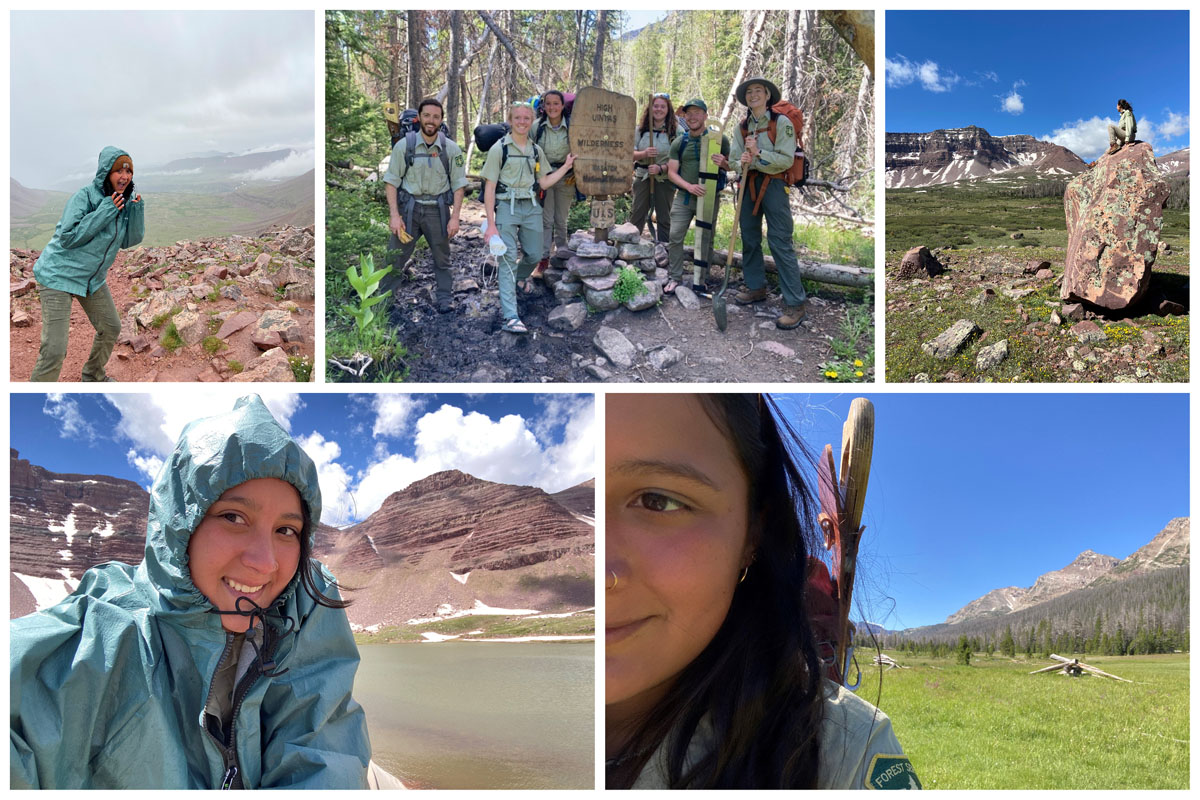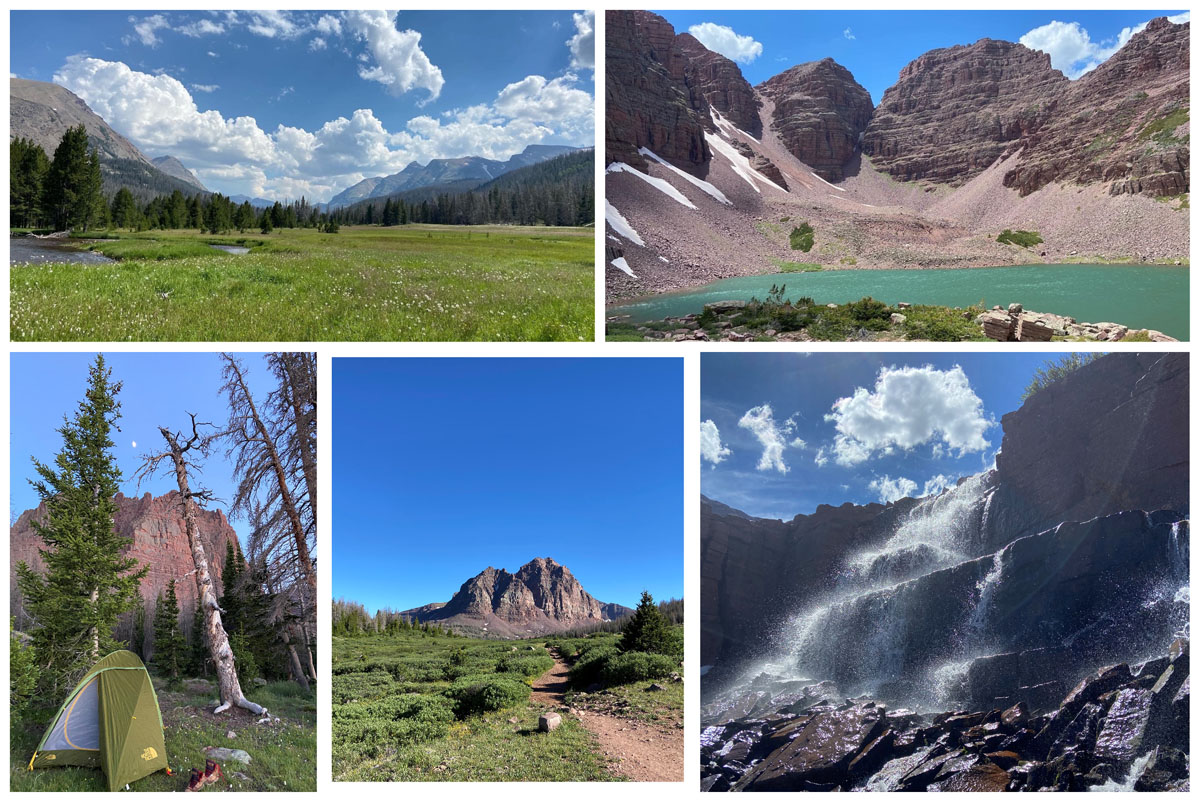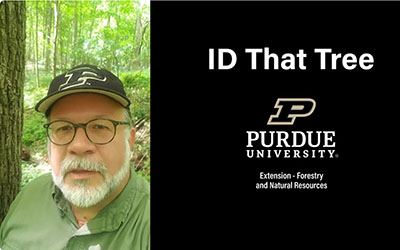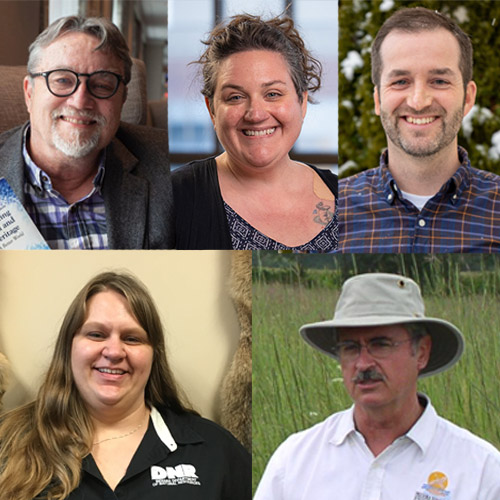FNR Field Report: Sonja Georgiefski-Rios
Students from Purdue Forestry and Natural Resources took their classroom knowledge to the field for summer internships and paid positions across the country, gaining valuable experience, hands-on training and career guidance. The FNR Field Reports series will offer updates from those individuals as summer positions and experiences draw to a close.
Senior wildlife major Sonja Georgiefski-Rios worked as a wilderness ranger at the Uinta-Wasatch-Cache National Forest in Utah.
Georgiefski-Rios answered visitor questions, and helped to remove illegal fire pits, make sure all camps were regulation and clean up garbage. The position required her to backpack with her crew and stay in the backcountry for four to five days at a time.
“I learned to work in teams, communicate clearly, be punctual, be independent, etc.,” Georgiefski-Rios said. “I absolutely loved working with my crew, which included two other members. I enjoyed when visitors asked questions because it meant that they cared. I also was grateful to see the views I was able to during this job. If I had been with a different crew, I wouldn't have had that opportunity!
“Something that stood out was the number of moose I saw. Oftentimes they would be a short distance away. I also liked being away from home and exploring new places (Salt Lake, Park City, etc.). I think the biggest thing that stood out was that everyone was from a different state and it was fun to learn about their families and hobbies back at home.”
In her role, the Valparaiso, Ind., native, was able to apply knowledge from her FNR course work in forest ecology, fish, mammals, birds, dendrology, communications, forest economics and more.
“I used FNR coursework to help navigate through the forest, identify species of fish in the rivers and lakes, identify mammals such as moose and elk from binoculars, understand the effects of invasive beetles on the Lodgepole pine trees, communicate with visitors as they explore the forest, and much more,” Georgiefski-Rios said.
 Sonja Georgiefski-Rios during her internship at Uinta-Wasatch-Cache National Forest (clockwise from upper left): Sonja climbing up to Kings Peak during a rainstorm; her first hike to Amethyst with some amazing people; Sonja on a rock she climbed overlooking Henry's Fork basin; Sonja walking into Dead Horse trail with her multi-day pack and saw; Sonja sitting by Cliff Lake, about 10 miles from Henry's Fork base camp.
Sonja Georgiefski-Rios during her internship at Uinta-Wasatch-Cache National Forest (clockwise from upper left): Sonja climbing up to Kings Peak during a rainstorm; her first hike to Amethyst with some amazing people; Sonja on a rock she climbed overlooking Henry's Fork basin; Sonja walking into Dead Horse trail with her multi-day pack and saw; Sonja sitting by Cliff Lake, about 10 miles from Henry's Fork base camp. The wilderness ranger position was challenging, but Georgiefski-Rios proved to be up to the task.
“The physical aspect of the job was the hardest part because of the change of elevation and the amount of hiking required,” she said. “Each four-day hitch we hiked on average 45 miles! At first it was very difficult to keep up, but now I’m pretty in shape and I feel great!”
Georgiefski-Rios, who has a minor in forest ecosystems, has new career goals after completing her summer in Utah.
“This position changed my plans,” she said. “At first, I wanted to work for the park service but after this season I think I'm more set on working for the Forest Service. I learned more about the Forest Service and how it can benefit me more than the Park Service! The forest service can benefit me more by the timber products the forest provides. I have a minor in forest ecosystems and I'd like to exercise my degree as much as possible. I also enjoy how the forest is open to visitors at all times, however parks can regulate when their gates are open or not. I like the idea of the freedom people have to visit their beautiful forests. I guess we will see where the future takes me.”
 Some of the sights that Sonja Georgiefski-Rios saw during her summer internship (clockwise from top left): Dead Horse trail in Utah; a beautiful lake she came across in Red Castle, Utah; a waterfall Sonja found exploring around Red Castle; Red Castle from a few miles away - the hike in was 12 miles; Sonja's camp set up with Red Castle in the background.
Some of the sights that Sonja Georgiefski-Rios saw during her summer internship (clockwise from top left): Dead Horse trail in Utah; a beautiful lake she came across in Red Castle, Utah; a waterfall Sonja found exploring around Red Castle; Red Castle from a few miles away - the hike in was 12 miles; Sonja's camp set up with Red Castle in the background. 





